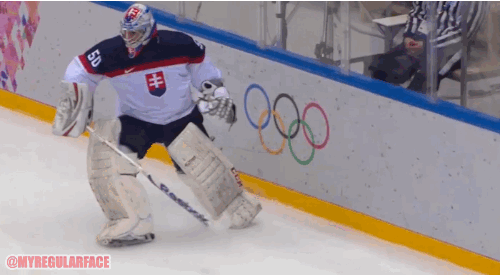The two line brawls last year between the U.S. and Canada proved women's hockey can get plenty physical.
But all the bumping and shoving that goes on between world's two best teams belies a fundamental truth: If they're playing by the rules, women play a daintier game of hockey than their male counterparts. In women's hockey, body checking—a core tactic of the men's game—isn't allowed.
...
Some fans gripe that the women's game would be more exciting if they were allowed to flatten each other on the open ice—as they did for years. But the 1970s and 1980s produced vigorous debates in the U.S. and Canada over whether to ban the practice, and eventually it became outlawed in international play. A return to body checking hasn't been seriously considered.
But the game has plenty of body contact even with the rule, players say. "For someone to say there's no body checking and no hits is naive," said Team USA forward Monique Lamoureux. "It happens."
...
Today, most players and coaches say they like a style of play that encourages speed over brute strength.
"It allows for more development of the skill of the game, and size isn't a limiting factor for players," said Julie Chu, who is playing in her fourth Olympics for Team USA in Sochi. "It's still a really physical game."
...
Hockey is one of the few major sports whose rules are different for men and women. Lacrosse also bans checking in the women's game.
Fran Rider, president of the Ontario Women's Hockey Association and a former player herself, has argued both sides of the body-checking debate. Allowing the practice would lend more credibility to the women's game, could motivate more people to watch and might reduce dirty play with sticks as a way to vent frustration, she said. But, ultimately, Rider thinks the game is better off without it.
"The game is faster and it highlights skills without body checking," said Rider, who lobbied to get women's hockey into the Olympics. "And lesser-skilled players and teams could use intimidation and goon tactics to injure skilled players on other teams."
Parents are more apt to let their kids play, she said, and professional women are more likely to play with less risk of getting a black eye or tooth knocked out. Unlike professional men, women who play at the highest levels almost always need another source of income.
...
The U.S. women are looking to end an Olympic gold-medal drought: They won the inaugural women's gold in Nagano in 1998, but Canada has won every Olympic tournament since.
During a pre-Olympic match in December, with the U.S. leading Canada 4-1, tempers flared in the waning minutes and led to a bevy of on-ice fights between several players on each team. An earlier match also ended in fight.
And they're on a collision course again: The U.S. team has started off well in Sochi, defeating Finland 3-1 last week and flattening the Swiss 9-0 on Monday. Canada beat Switzerland 5-0 in its first game and topped Finland 3-0 on Monday.




